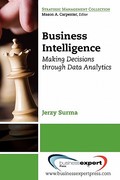Question
A researcher gathers data on the educational attainment (years of schooling) of the adult population ages 25-30 in a city called Newtown, before and after
A researcher gathers data on the educational attainment (years of schooling) of the adult population ages 25-30 in a city called Newtown, before and after the first university opens in that city in 1980. She wants to study whether opening up of a university in that city increases the percentage of young people holding a Bachelor's degree. She gathers data from this city for 5 cohorts of 25-30 year-olds who reached age 25 before the university opened up, and 5 cohorts who reached age 18 after the university opened up. Let i indicate the individual and t indicate which of the 10 birth-year cohorts the student is from. So the 5 birth cohorts who reached age 25 before the university opened up have t (birth cohort) equal to 1951, 1952, ..., 1955. The five birth cohorts who turned 18 after the university opened up have t equal to 1962, 1963,..., 1966. The researcher regresses
Bachelorsit= a + bTREATEDit
where Bachelorsit= 1 if the person in birth cohort t hold's a Bachelor's degree and 0 otherwise, and
TREATEDit= 1 if the student is from one of the 5 cohorts of students reaching age 18 after the university opened up, and 0 if the student is from one of the 5 cohorts who reached age 25 before the university opened up. The following is the result:
Bachelorsit= 0.2001 + 0.1203TREATEDit
(0.04). (0.04)
In this equation, the top row shows the linear regression coefficients and the numbers underneath in parentheses show the standard errors
a)What is the predicted change in the percentage of students holding a Bachelor's degree after the university opens up? is it statistically significant at the 5% level?
b) Is there a risk of omitted variable bias in this analysis?Explain in a sentence or two
Step by Step Solution
There are 3 Steps involved in it
Step: 1

Get Instant Access to Expert-Tailored Solutions
See step-by-step solutions with expert insights and AI powered tools for academic success
Step: 2

Step: 3

Ace Your Homework with AI
Get the answers you need in no time with our AI-driven, step-by-step assistance
Get Started


